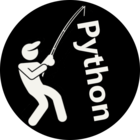Let's assume we have a feature attribute called "two_digit_number". The attribute can have any integer value from 10 to 99. The condition "not an unlucky number" is met, if the value is not "13".
I was wondering if I could represent this condition in a single line of my SchemaMapper's lookup table? Something like two_digit_number != 13.
I could probably use a "TesterFilter" to filter out features with unlucky numbers before they enter the SchemaMapper - however, in my project I have dozens of attributes that need to be handled in a similar way. I would have to send all of them through a "TesterFilter". And this is what I would like to avoid.
I am excited to learn if there is a simple solution I may have overlooked.






